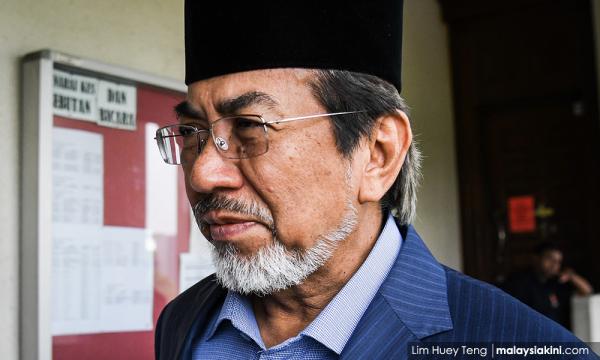COMMENT | The shocking acquittal of scandal-ridden former Sabah chief minister Musa Aman from massive corruption charges has rattled the Malaysian political scene.
He was acquitted of all the 46 charges of receiving kickbacks from 16 logging companies totalling almost US$90 million (about RM380 million) spanning from 2004 to 2008 before the trial even began.
Upon instant outcries from a stunned public, attorney-general (AG) Idrus Harun hastened to justify his decision to withdraw the charges on the grounds of lack of evidence and upon an urgent sworn statement from former AG Abdul Gani Patail who explained why he jettisoned the case in 2012.
While both grounds are found to be factually and legally flawed, what is equally if not more disturbing is the lightning speed with which Idrus claimed to have reviewed the entire case and made his decision.
Idrus said that after receiving Gani’s affidavit on June 5, his department “reviewed the whole evidence for the case” and on morning of June 9 (which was earlier fixed for case mention), he applied to withdraw all the charges.
But how could he have effectively and conscientiously reviewed in two working days such a huge corruption case involving numerous transactions over many years with any credibility? And what is the justification for the extraordinary haste in reaching such a monumental decision?
Be that as it may, Gani’s submission is full of holes. He said Musa should not be charged because the money involved was for political funding. This is, of course, legal nonsense. An offence is committed when you take or handle money illegally and should be punished in accordance with the relevant laws, irrespective of how the money is used for.
Incidentally, Gani’s legal rationale was an advertent admission that Musa did indeed receive the kickbacks as alleged, except that they were for a purpose that he thought wrongly would justify the illegal act.
Gani also claimed that his decision was concurred by then Malaysian Anti-Corruption Commission (MACC) Chief Abu Kassim Mohamed. This claim is false.
In a statement on Nov 9, 2018, MACC clarified that it was Gani, and not MACC, who decided not to pursue the case against Musa due to it being related to political donation. In fact, contrary to Gani’s current assertion, MACC had disagreed with Gani as reflected in its request to Gani to review his decision.
The abovementioned MACC statement was actually issued to retort former prime minister Dr Mahathir Mohamad’s attempt a day earlier to shift the responsibility from Gani to MACC over the non-action against Musa.
Lack of evidence?
With regards to Idrus’ claim that there is lack of evidence, particularly from foreign sources, to proceed with the trial, this assertion is in conflict with then prosecutor for the Musa case, Gopal Sri Ram, who expressed “amazement” at how Gani had not taken action against Musa despite the MACC having a strong case with testimony from foreign witnesses.
At any rate, if there was insufficient evidence to go for trial, would Idrus’ predecessor Tommy Thomas had gone ahead with the 46 charges buttressed with meticulous details of each illegal transaction?
And why had there been no complaint of lack of evidence right up to the time when the prosecutor presented the request to the court to discharge Musa? Has the evidence suddenly evaporated after receiving the affidavit from Gani two working days earlier? Is it even remotely possible that every one of the 46 charges is unsupported by triable evidence?
Unless Idrus gives credible explanations and answers to these disturbing issues and questions, his integrity as the government’s top legal adviser and the prosecutor of our judicial system will be shredded to pieces.
Weighing the highly disturbing circumstances surrounding the acquittal of Musa Aman described above, one cannot help but deduce that urgent political agenda had been at play behind these alarming judicial manoeuvres.
And coming on the heel of the widely criticised discharge of Riza Aziz, stepson of former prime minister Najib Razak, on multi-million money laundering charges involving the infamous 1MDB scandal, as well as the rejection of a series of forfeiture applications over distribution of the 1MDB stolen funds initiated by the former Pakatan Harapan coalition government, the present acquittal of Musa has heightened worries that a pattern of judicial abuse might be at work to set free top leaders of ruling Umno charged for high corruption (mostly related the 1MDB theft) during the short-lived Harapan reign.
The onus is on the current Perikatan Nasional coalition government, which snatched power illegitimately from Pakatan Harapan three months ago, to prove by deeds and reasoning that it is otherwise.
KIM QUEK is the author of the banned book The March to Putrajaya, and best seller Where to, Malaysia?
The views expressed here are those of the author/contributor and do not necessarily represent the views of Malaysiakini.


